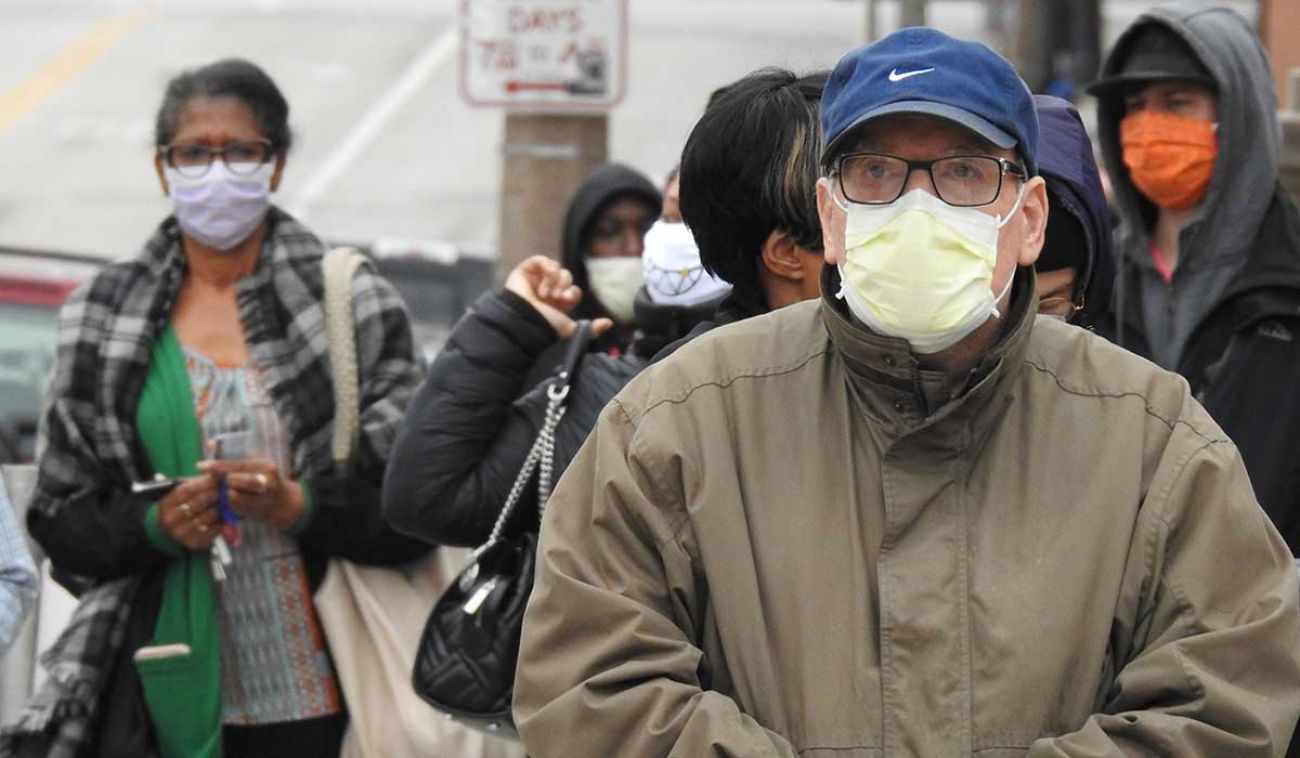Jocelyn Benson to aid Detroit clerk after problems plagued primary election

The Michigan Department of State will recruit and train at least 6,000 election workers and provide other support to the city of Detroit during the November election, Secretary of State Jocelyn Benson announced Wednesday.
The announcement comes after more than 70 percent of Detroit’s absentee voting precincts and nearly half of the city’s precincts overall were deemed ineligible for a recount in the August primary election. That prompted Wayne County and state officials to ask Benson to intervene in the city’s elections to ensure it doesn’t happen again.
“Democracy is a team sport and as a longtime resident of the city of Detroit I am proud to stand shoulder to shoulder with [Detroit City Clerk Janice Winfrey] to ensure she has all the support she needs,” said Benson.
Related:
- Detroit’s August election woes have many worried about November
- Michigan GOP plans huge door-knocking effort to re-elect Trump amid pandemic
- Michigan judge upholds Jocelyn Benson’s absentee ballot application mailings
- Botched elections. Missing ballots. Is this any way to run a democracy?
The partnership between the Secretary of State’s office and the Department of State is supported by Wayne County Executive Warren Evans, Wayne County Clerk Cathy Garrett and Detroit Mayor Mike Duggan and will use some resources provided by the Detroit Red Wings, Tigers, Pistons and Lions.
Chris Thomas, the former state Director of Elections under both Republican and Democratic Secretaries of State, will be a senior adviser to the Detroit clerk’s office through Election Day.
Under the partnership, Winfrey will:
- Recruit and train at least 6,000 election workers.
- Install at least 30 ballot drop boxes across the city.
- Open 14 new satellite clerk’s offices (there are currently seven) beginning Oct. 5 where people can register to vote and get and return absentee ballots.
- Change ballot-counting and sorting practices to better use high-speed ballot counters and reduce errors.
- Use Little Caesars Arena for a socially distanced election training for new workers.
Detroit’s August primary election was plagued with problems, including some polling locations opening late because workers did not show up.
The city changed polling places in the days leading up to the election, causing confusion, and the final results for Wayne County were the last to be ready in the state.
Weeks later, when a Wayne County board and a state board required to certify elections reviewed the results, they found hundreds of precincts in which total votes cast were at least one ballot off from the total number recorded without explanation for the mismatch. As a result, nearly half of all precincts in the city wouldn’t have been eligible for a recount if needed. The problem was especially acute among the absentee voting precincts, in which nearly three-quarters couldn’t be recounted.
In the November election, absentee ballots are expected to double statewide and a close race is expected in the presidential contest.
The Wayne County Board of Canvassers certified the results but asked Benson’s office to investigate the city’s election worker training and other processes.
The next week, the Board of State Canvassers came down to the wire on a deadline to certify the state’s results, held up by controversy over how to ensure Detroit’s election doesn’t turn into an even greater mess in the fall. The board eventually decided to certify the results “with the requirement that the secretary of state exercise supervisory control” over Detroit’s elections if problems aren’t fixed before November.
Detroit Elections Director Jonathan Brater made it clear to the board that Benson’s office won’t take over the city’s election, saying it’s “logistically, practically” not possible. Instead, the department promised to “support and assist” Winfrey in the fall.
Detroit and other Michigan cities are facing unprecedented challenges this election season. The coronavirus pandemic has prompted poll worker shortages as veteran poll workers are often elderly or particularly vulnerable to the virus. As others are wary of in-person voting, absentee ballot requests have skyrocketed.
That’s aided by a new 2018 law making it possible for every eligible voter to vote absentee, rather than a limited group. In August, a record 1.6 million people statewide voted absentee, beating out the previous record of 1.27 million in the 2016 general election. The uptick in absentee ballots has contributed to delayed results and clerk’s offices stretched thin as they support both larger absentee counting teams and in-person poll worker teams.
But the August election isn’t the first time Detroit’s election system has had big problems.
Green Party presidential candidate Jill Stein demanded a recount in Michigan in 2016, and only about 40 percent of Detroit precincts could be recounted because of balloting issues.
The next year, Garlin Gilchrist, who is now lieutenant governor, asked for a recount in his campaign for city clerk against Winfrey and only 80 percent could be recounted.
Complaints about Detroit’s elections have continued for at least 20 years, including issues with broken voting machines, power outages, missing poll books and other problems that have fostered distrust with the system.
See what new members are saying about why they donated to Bridge Michigan:
- “In order for this information to be accurate and unbiased it must be underwritten by its readers, not by special interests.” - Larry S.
- “Not many other media sources report on the topics Bridge does.” - Susan B.
- “Your journalism is outstanding and rare these days.” - Mark S.
If you want to ensure the future of nonpartisan, nonprofit Michigan journalism, please become a member today. You, too, will be asked why you donated and maybe we'll feature your quote next time!




